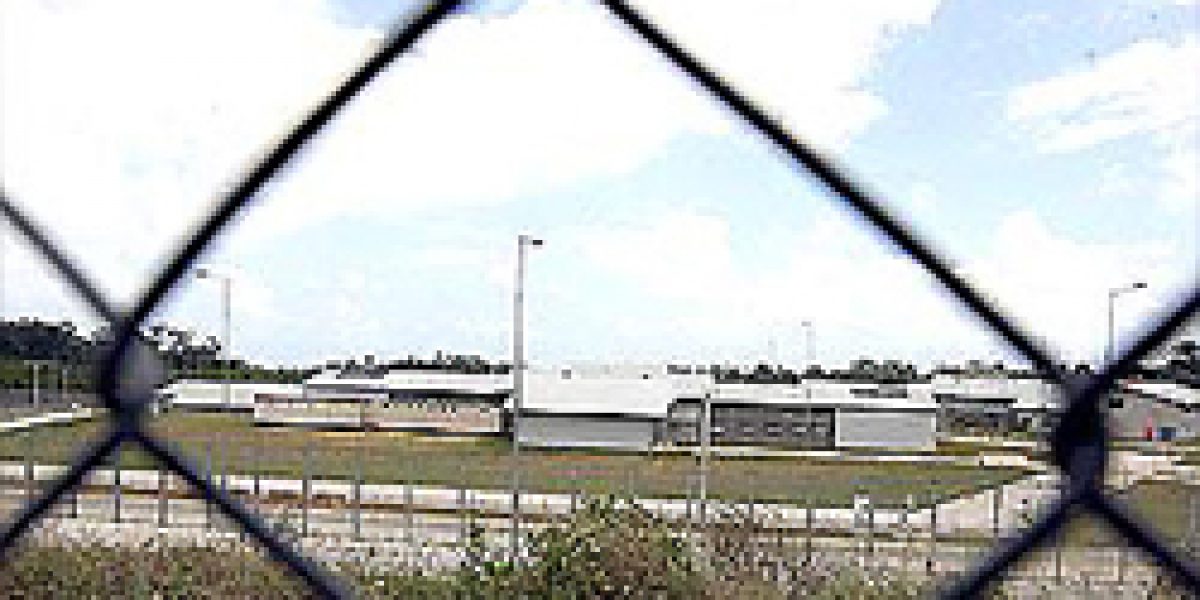Australia: Outsourcing asylum not the solution
12 October 2010

Sydney, 12 October 2010 – JRS questioned the construction of regional processing centres for refugees as the sole answer to the rising number of asylum seekers coming to the Asia Pacific region.
Prime Minister Julia Gillard announced plans for building a processing centre, possibly in the nearby nation of Timor Leste. The plans were announced prior to the elections in August, and partly as a response to this rising number of asylum seekers arriving to Australia by boat, pushing several migration detention centres beyond capacity. This week, Australia’s Minister for Immigration, Chris Bowen, visited Timor Leste to begin discussing requirements for building such a centre.
But, according to JRS Australia Director, Sacha Bermudez-Goldman SJ, a regional processing centre will not solve this immediate capacity problem. It would take months if not over a year or more to build such a facility.
While accepting that there is a need to find mechanisms to ensure that asylum seekers are able to receive international protection, Fr Bermudez-Goldman questioned the selection of Timor Leste, a small recently independent state with its internal issues and problems.
If the purpose of a processing centre is to find the most equitable way to receive and determine the claims of asylum seekers in the region, it would seem that Australia would be a better candidate.
“Surely Australia with many more resources would be better placed than Timor Leste to process asylum claims for the region”, said Fr Goldman.
“While in principle processing centres are needed for immediate health, identity and security checks, there are a number of unknowns. What happens, for example to those whose cases for refugee status are rejected? Will Timor Leste be responsible for returning them to their countries of origin? Will they have the right to appeal their cases? Will these cases be heard by Australian judges, and who will provide legal representation?”, continued Fr Goldman.
Moreover, Fr Goldman expressed concern that such a processing centre could become a de facto detention centre, as is the case of the centre at Christmas Island. In such a situation, people can be kept in detention for indefinite periods of time; there are people who now have been on Christmas Island for 14 months or over.
JRS, in cooperation with many other asylum seeker and refugee advocacy groups, continues to call for an end to this practice of long periods of indefinite detention for so many people, including families with small children and unaccompanied minors.
Detention
The immediate difficulty facing the Australian government is the overcrowding of the country’s detention centres; Christmas Island has been over capacity for a long time now: four more boats arrived in the past week bringing the total number to close to 2,700 detainees.
The main detention centre was originally built for 400 and has been modified several times to include additional accommodation. Back in April, some of the detainees began to be moved to detention centres on the mainland, but these too are coming close to capacity now. The government is under a lot of pressure to find alternative sites for accommodation.
“There is no simple or quick solution to this issue, but as long as we continue to identify people who arrive in Australia by boat as a problem, not as people who have a problem, and try to exclude them from coming to our shores, it is difficult for us to talk about cooperating with a regional protection framework. In reality, what we are doing is looking after our own self interests”, added Fr Goldman.
“Attitude is a powerful force in determining and guiding our motivations. Our attitude towards asylum seekers and their plight needs to change from an approach that asks ‘what is this (welcoming asylum seekers) going to cost us/how is this going to affect us’ to an approach that emphasises that ‘these are human beings, our brothers and sisters, who need our compassion and care'”, Fr Goldman said.


